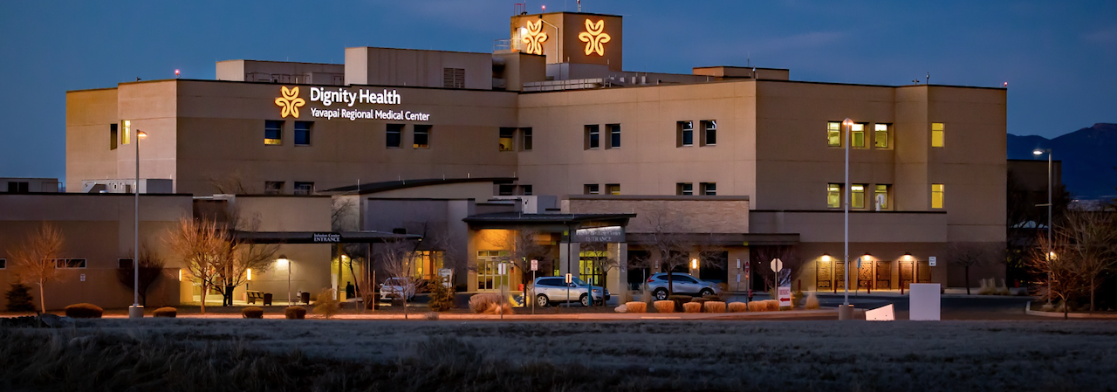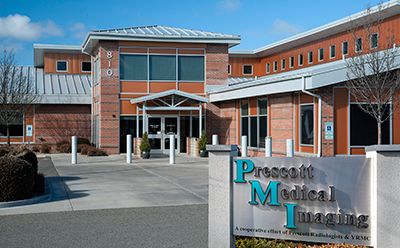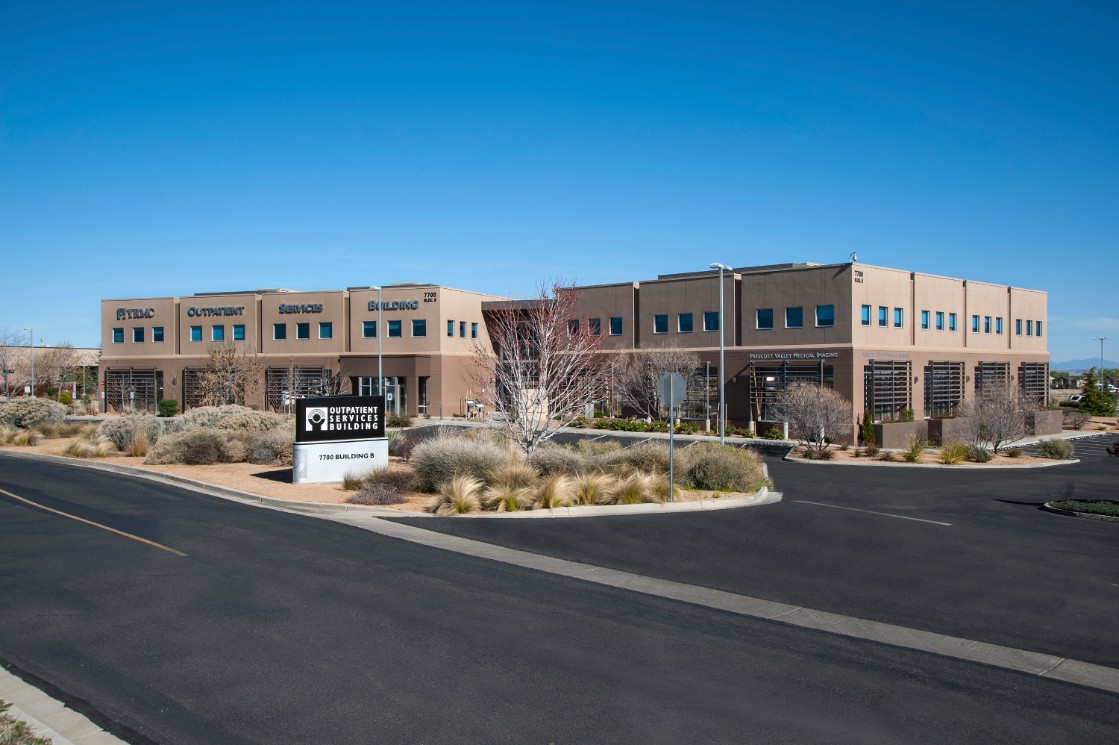Yavapai Regional Medical Center East
7700 East Florentine Road
Prescott Valley, AZ 86314
928.445.2700

Yavapai Regional Medical Center
Lung Cancer Care
Lung cancer screenings: Early detection saves lives.
Both current smokers and people who quit smoking years ago worry about their risk for lung cancer. That's why Dignity Health Yavapai Regional Medical Center (DH-YRMC) offers lung cancer screening through its Lung Cancer Screening and Care Program.
Using low-dose computed tomography (LDCT), our Imaging Services team produces detailed images of the lungs. These images can detect extremely small nodules, which may indicate lung cancer in its early stages—before symptoms and while it’s most curable.
Who is considered high risk for lung cancer? YRMC recommends you speak to your healthcare provider about LDCT if you are:

To prepare you for a conversation with your physician, YRMC is providing information about LDCT. We'll also introduce you to our comprehensive Lung Cancer Screening and Care Program, which includes:
Questions? Call us at (928) 771-5454.
The U.S. Preventive Services Task Force (USPSTF) – an independent, volunteer panel of medical experts in prevention and evidence-based medicine – recommends lung cancer screening for people:
Whether or not to get screened for lung cancer is a personal decision. YRMC encourages you to speak with your healthcare provider to help you make that choice. Here are questions to guide that discussion:
YRMC and other leading healthcare providers use LDCT to screen for lung cancer. This simple procedure provides detailed images of the lungs and can detect lung cancer in its early stages, while it's most curable.
To undergo LDCT, you lie on your back on a narrow table that will slide into the CT scanner. You will be asked to hold your breath for up to 10 seconds while the scan takes images of your lungs. There are no needles or medications given as part of LDCT.
The entire process – from check-in to the scan – takes approximately 30 minutes.
It's estimated more than 80 percent of lung cancers could be cured if discovered at an early stage. LDCT screening is performed before people are experiencing symptoms in order to detect lung cancer as early as possible.
The risks of LDCT include:
This minimally invasive procedure is used to diagnose lung cancer, infections and other medical conditions. During EBUS, procedural pulmonologists and other specialists perform a technique known as needle aspiration to obtain tissue or fluid samples from the lungs and surrounding lymph nodes without surgery. The samples help diagnose and stage lung cancer, detect infections and identify diseases that affect the lungs.
Navigational bronchoscopy combines advanced imaging techniques with electromagnetic navigation. This allows doctors to find lung tumors, perform biopsies and administer treatment.
Yes. Your primary care provider will advise you on lung cancer screening and give you an order for the screening. The order will include:
If you fit the high-risk criteria, most health insurance plans and Medicare cover lung cancer screening with no co-pays or deductibles. Work with your doctor's office to check your individual coverage.
Yes. Speak to your physician if you believe you could benefit from LDCT. If you don't meet the criteria, your doctor may still recommend the screening. Be sure to contact your insurance provider to learn about your coverage.
Call YRMC's Lung Cancer Screening and Care Program Patient Navigator at (928) 771-5454 for more information on LDCT.
Lung cancer is abnormal cells growing out of control. These cells may form a tumor or spread outside of the lungs. Most lung cancer deaths occur because the disease is discovered after it has spread to other parts of the body.
It's the leading cause of cancer death in the U.S. with 150,000 people dying from it each year. Approximately 220,000 people are diagnosed with lung cancer annually.

7700 East Florentine Road
Prescott Valley, AZ 86314
928.445.2700

810 Whipple Street
Prescott, AZ 86301
928.771.7577

7700 East Florentine Road
Building B, Suite 105
Prescott Valley, AZ 86314
928.771.7577